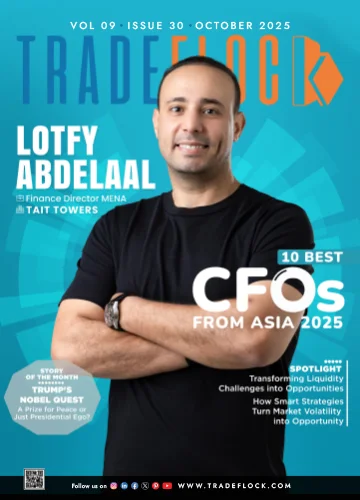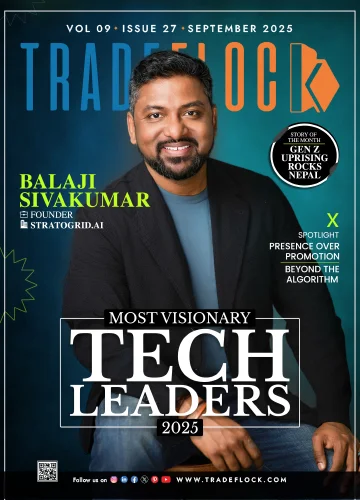
Redefining Public Healthcare Leadership
Thomas Richard "Tommy" Stedham
Retired Associate Director
Alabama Medicaid Agency


Redefining Public Healthcare Leadership
Thomas Richard "Tommy" Stedham
Retired Associate Director
Alabama Medicaid Agency
Thomas Stedham - Visionary Global Corporate Leaders to Watch in 2025
As millions of Americans rely on Medicaid for healthcare access, the system’s complexity and regulatory challenges often create hurdles for both applicants and administrators. Navigating eligibility rules, managing vast amounts of sensitive data, and adapting to crises like the COVID-19 pandemic require not just strategy but strong, compassionate leadership. In this challenging landscape stands Thomas Richard “Tommy” Stedham, a retired Associate Director at the Alabama Medicaid Agency. Since starting his career in 1991 as a caseworker handling eligibility for children and pregnant women, Thomas has been driven by a simple yet powerful philosophy: treat others the way you want to be treated. His leadership has delivered impactful results, overseeing renewal of a vendor contract, reducing Medicaid eligibility processing time by 30%, and safeguarding patient data by properly archiving thousands of case file boxes. During the pandemic, he guided the Agency through rapid regulatory adjustments and oversaw a Resource Center to assist district offices in processing applications. A strong advocate for mentoring, Thomas empowered younger leaders and women, fostering a culture of support, respect, and open communication. He sees his greatest impact on the people he helped advance professionally. His story is one of humility, strategic insight, and genuine dedication to improving healthcare access in Alabama’s most vulnerable communities. He spoke with TradeFlock about his journey, experiences, hurdles he overcame, leadership philosophy, and much more in an insightful conversation.
What were some of the key milestones in your career that led you to your current role as Associate Director at the Alabama Medicaid Agency?
I started at the Alabama Medicaid Agency in December 1991, when eligibility determination for SOBRA Medicaid was transferred from the Department of Human Resources to the Medicaid Agency. Initially, I worked as a caseworker for nearly four years, focusing on eligibility for children and pregnant women. After a brief time away, I returned in 1999 and steadily climbed the ranks through dedication and a strong work ethic. I’ve always believed in doing my job well and treating others the way I want to be treated. Mentorship, integrity, and leading by example have been central to my journey. I saw leadership as being a buffer, protecting my team from unnecessary pressure while empowering them to excel.
What has been one of the toughest operational challenges you faced in your Medicaid journey, and how did you navigate it?
The COVID-19 pandemic was the most unusual and challenging period of my career. The federal government eased up on regulations to accommodate the disruptions people faced. We had to adapt quickly, easing eligibility rules to ensure people didn’t lose access to benefits and providers got paid. Another ongoing challenge is high staff turnover, especially in areas like nursing home Medicaid eligibility. The Agency addresses this through a Resource Center that helps process applications. It was about being adaptable, encouraging my team, and taking on work myself when needed.
How did you guide and empower your team, particularly younger leaders and women in healthcare?
I worked hard to support and empower all of my employees, most of whom were women. I adopted a “player’s coach” mentality, inspired by former Alabama football coach Nick Saban — someone who leads by example and genuinely cares for their team. I celebrated birthdays, provided food, celebrated promotions and the onboarding of new staff, and always greeted my team personally every day. I maintained an open-door policy, ensuring everyone felt heard. I wanted them to feel we were a family, working hard but enjoying the journey together.
Was there a mentor or a key experience that shaped the way you lead today?
Absolutely. Over my nearly 30-year career, I have been mentored by many individuals, including supervisors, colleagues, and people outside my direct line of work. What mattered most was having someone I could confide in without judgment, someone who offered honest advice and wisdom. These relationships helped me grow into the leader I am today. I also tried to be a mentor to others, offering support and a listening ear when needed. It’s about building trust and treating people fairly.
How is Alabama Medicaid integrating technology, like AI, to improve healthcare access and data analysis?
While I wasn’t directly involved in technical development, I know the agency has been making strides. For example, applicants can now complete Medicaid applications online or by phone, making the process more convenient and reducing the risk of lost paperwork. Nursing homes can submit applications electronically, streamlining the process significantly. I anticipate that AI and other technologies will further evolve to help case workers and improve efficiency, but we’re still in the early stages of that transformation.
“I adopted a "player's coach" mentality, inspired by Alabama football coach Nick Saban, someone who leads by example and genuinely cares for their team”
How do you personally measure your impact as a leader beyond policies and numbers?
The greatest impact I see is the people I’ve helped develop. Many employees I hired or mentored have risen to high positions, some becoming Associate Directors or even Directors themselves. When I see people I worked with advance in their careers, that’s the most rewarding outcome of my work. It’s a sign that I made a positive difference in their professional journey.














